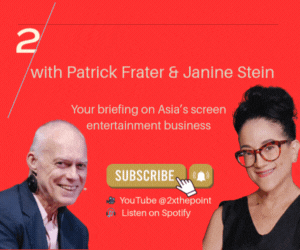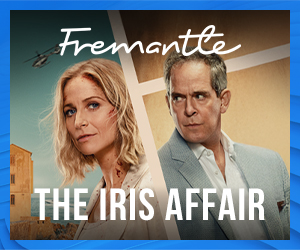FEATURES
Factual trends
01 April 2015
1 April 2015: AuthenticityFake is out. Authentic is in. "People want to see authentic stories about people," says Tracy Forsyth, vice president, commissioning for BBC Worldwide Channels. It's an opinion being echoed in factual circles around the world. "There is no doubt that big character-driven reality series are here to stay, but we are seeing a growing appetite for more authenticity in the way stories are told in this space," says Ryan Shiotani, BBC Worldwide Asia's content vice president. "Viewers are still connecting with unique characters who push personal boundaries, master new skills and achieve once in a lifetime dreams, but it's increasingly in a more authentic and less over-produced way," Shiotani says. This is, indeed, a line Discovery's new channel head in the U.S., Rich Ross, took earlier this year when he killed off fake-umentaries despite high ratings. Ross promised programming that "makes people care and do something about it". Entertainment above all & alwaysAlthough there has been some push back on the lengths factual producers are going to entertain audiences, the need to entertain remains a priority. "People have to be entertained first, otherwise they won't get to the education and learning thing," says BBC Earth's creative director, Neil Nightingale. This is not new to him. "In natural history programming we did animal soap operas seven to eight years ago. So the rules of the soap opera applied. An episode always had to end on a cliff-hanger. The story is still the same, it is the way you edit it that changes. We stripped it as a daily instead of a weekly." At the same time, traditionally factual brands are sticking to their guns on drama set against real historical events. And it's working. Shows like Vikings season three earlier this year put History in top spot among all English-language pay-TV channels in Singapore (Kantar Nielsen) and ...
1 April 2015: AuthenticityFake is out. Authentic is in. "People want to see authentic stories about people," says Tracy Forsyth, vice president, commissioning for BBC Worldwide Channels. It's an opinion being echoed in factual circles around the world. "There is no doubt that big character-driven reality series are here to stay, but we are seeing a growing appetite for more authenticity in the way stories are told in this space," says Ryan Shiotani, BBC Worldwide Asia's content vice president. "Viewers are still connecting with unique characters who push personal boundaries, master new skills and achieve once in a lifetime dreams, but it's increasingly in a more authentic and less over-produced way," Shiotani says. This is, indeed, a line Discovery's new channel head in the U.S., Rich Ross, took earlier this year when he killed off fake-umentaries despite high ratings. Ross promised programming that "makes people care and do something about it". Entertainment above all & alwaysAlthough there has been some push back on the lengths factual producers are going to entertain audiences, the need to entertain remains a priority. "People have to be entertained first, otherwise they won't get to the education and learning thing," says BBC Earth's creative director, Neil Nightingale. This is not new to him. "In natural history programming we did animal soap operas seven to eight years ago. So the rules of the soap opera applied. An episode always had to end on a cliff-hanger. The story is still the same, it is the way you edit it that changes. We stripped it as a daily instead of a weekly." At the same time, traditionally factual brands are sticking to their guns on drama set against real historical events. And it's working. Shows like Vikings season three earlier this year put History in top spot among all English-language pay-TV channels in Singapore (Kantar Nielsen) and Malaysia (Nielsen). The Bible, also on History, was the channel's highest-rated show in Singapore last year. A+E Networks Asia also says big, character-driven shows such as Pawn Stars, Kings of Restoration, The Pickers and Storage Wars made it the top factual entertainment channel in Singapore in 2014, as well as the top channel on Astro's learning pack in Malaysia, the top international factual entertainment channel on Thailand's TrueVisions, and the number one factual entertainment channel among middle class audiences in the Philippines. Along with new story telling styles comes a new breed of people telling them. BBC's Natural History unit head, Wendy Darke, says audiences are getting more sophisticated and producers are, as a result, using a more diverse range of presenters and story-telling styles. Some producers think these draw attention away from the story and images. Others point out that it may not always be about pasting a celebrity into the footage but about making programming more accessible. Long live linearAt least two new linear regional factual channels will appear in Asia in the next 12 months - Turner Broadcasting's World Heritage Channel and Spark Asia, a venture between Malaysian platform Astro, Singapore-based production house Moving Visuals International and European factual entertainment joint venture Spark. The Turner line here is pure docu - "meaningful and undiluted", the company said in its launch messaging. Both linear channels should be up and running across the region this year, with catch-up and as many authenticated OTT rights as programmers could secure. World Heritage Channel will focus on mankind's greatest treasures; signature content explores Unesco's World Heritage sites. Spark Asia will air science, tech, exploration, history, nature and wildlife content sourced from Spark JV partners, Autentic and ZDF Enterprises. Global content, including Astro chief executive, Rohana Rozhan, said when Spark Asia was announced in October 2014 there was a "huge opportunity in Asian factual content that resonates not only with audiences in Asia but around the world". Also in the linear space, there's cautious optimism that the brakes will come off China's dedicated factual channel, CCTV-9, and that acquisitions and big-budget co-production projects will resume this year. Drone onDrones, along with other hi-tech and cameras that can be clipped to, among other things, birds, are big news in the factual space for their ability to get images from where no cameras have gone before. 4K, although viewed by Japan as just a stop on the way to even higher definition, is another box that is being ticked by factual producers around the world. BBC Earth's creative director, Neil Nightingale, says technology gives filmmakers the "ability to capture on film things you couldn't film before". Nightingale speaks about a time it would take weeks to rig up a shot in, say, the rainforest. "Now drones do it," he continues. BBC execs say Alastair Fothergill's The Hunt, which looks at the relationship between predator and prey, and BBC Natural History Unit/Discovery co-pro Shark, which used 4K and high-speed camera technology, underline some of the biggest changes taking place in the world of factual and natural history programming. Factual everywhereThe delivery of factual content anytime anywhere follows consumer demand for video entertainment on all screens everywhere. If channels still face rights issues in providing seamless migration across devices, there is every expectation that these will dissolve in the face of overwhelming evidence that if viewers can't find what they want when they want it legally, there are 1,001 other access points. Producers have extended their stories everywhere, including into global on-ground tours. BBC Earth's Neil Nightingale says while the big stuff usually works on TV, online has opened up long and deep possibilities. For example, Life Story's pufferfish episode reached 60 million people on TV and had 80-90 million views online. "People were sharing clips and enjoying the best bits afterward," Nightingale says, adding that BBC Earth has started showing three-minute natural history docs between news. New cost consciousnessHi-tech has pushed up factual production costs by 20%-30% - and budgets aren't necessarily following. "We are just more creative with how we use them," says Tom Hugh-Jones, a BBC Natural History Unit producer. Budgets could range from ?100,000/US$150,000 to ?1 million/US$1.5 million an episode. One way to offset higher costs is co-productions, which have gone up from being "50% to 75% of the funding," says The Hunt's Fothergill. At the consumption end, viewer experience is being enhanced via multiple screens and social media. Fothergill points to 4K, theatrical, Imax among the range of options available. "We are doing a theatrical version of The Hunt and financially and creatively that is very interesting," he says. ContentAsia Factual 2015































